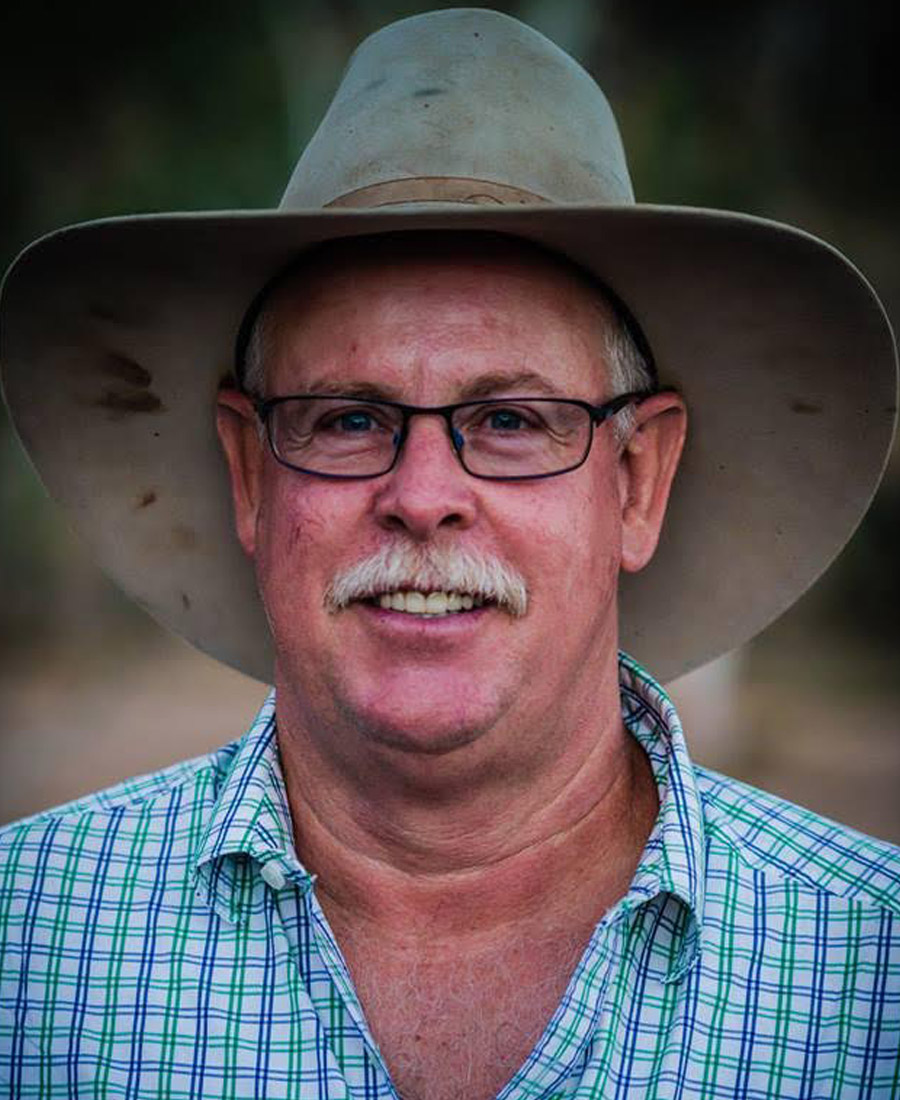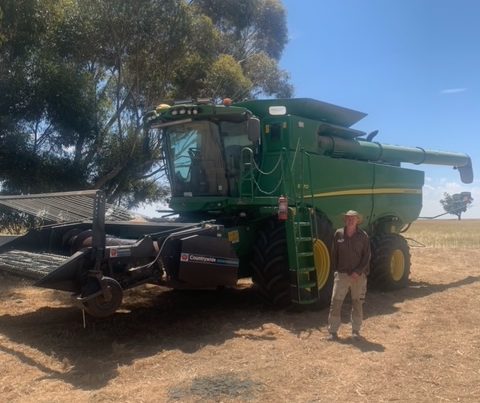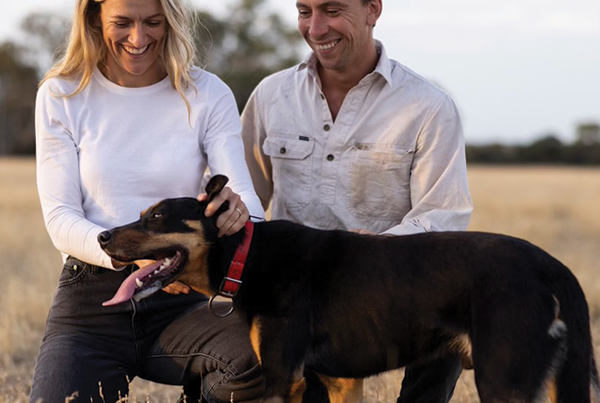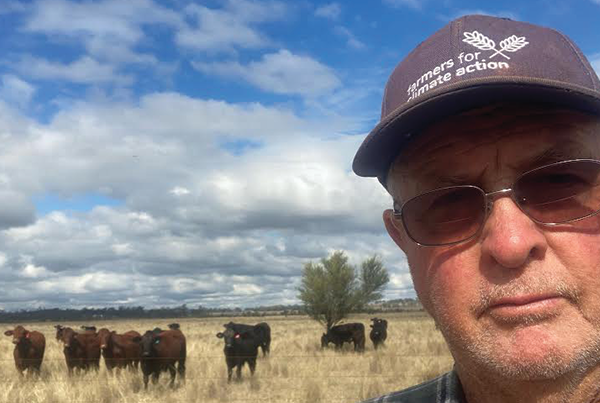
At a glance
Who: Angus, Karen and Fergus Emmott
What: “Noonbah”, a 52,000 hectare grazing property
Where: Two hours south-west of Longreach
Angus Emmott is a Farmers for Climate Action Board Director and a grazier south-west of Longreach. This climate-smart grazier says as a result of climate change he’s experiencing “hotter, drier periods interspaced with more intense and violent rainfall events”. “Given that we already live in one of the driest parts of the driest inhabited continent on earth, this makes running a grazing business more challenging,” he writes.
Can you tell us about your property?
We live here on “Noonbah” – myself, Angus, my wife Karen and adult son Fergus who is the fourth generation grazier on this land.
“Noonbah” is 2 hours SW of Longreach in the iconic Channel country. We are beef cattle producers, and our place sits on the confluence of the Thomson River and the Vermont channels. It is 52000 hectares, half of which goes underwater in a big flood event.
What first got you thinking about climate change?
I have been studying the science of climate for many years and can link anthropogenic climate change to the impacts we are seeing here on the ground.
How has climate change impacted on your farm business?
The two biggest impacts we are experiencing are long, hotter, drier periods interspaced with more intense and violent rainfall events. Given that we already live in one of the driest parts of the driest inhabited continent on earth, this makes running a grazing business more challenging.
What are some of the climate-smart strategies you’ve been employing and how successful have they been?
We’ve adapted some of our management practices to cope with these changes. One strategy is to have a much more flexible stocking regime, even going down to minimal head in very dry periods. We have also begun an eco-tourism enterprise for another stream of income. This also gives us the chance to quietly educate visitors about the outback, the importance of preserving our natural waterways and landscapes.
Although it is challenging with the impact of anthropogenic climate change, we are hoping to leave our land in better condition than when we started with it.






